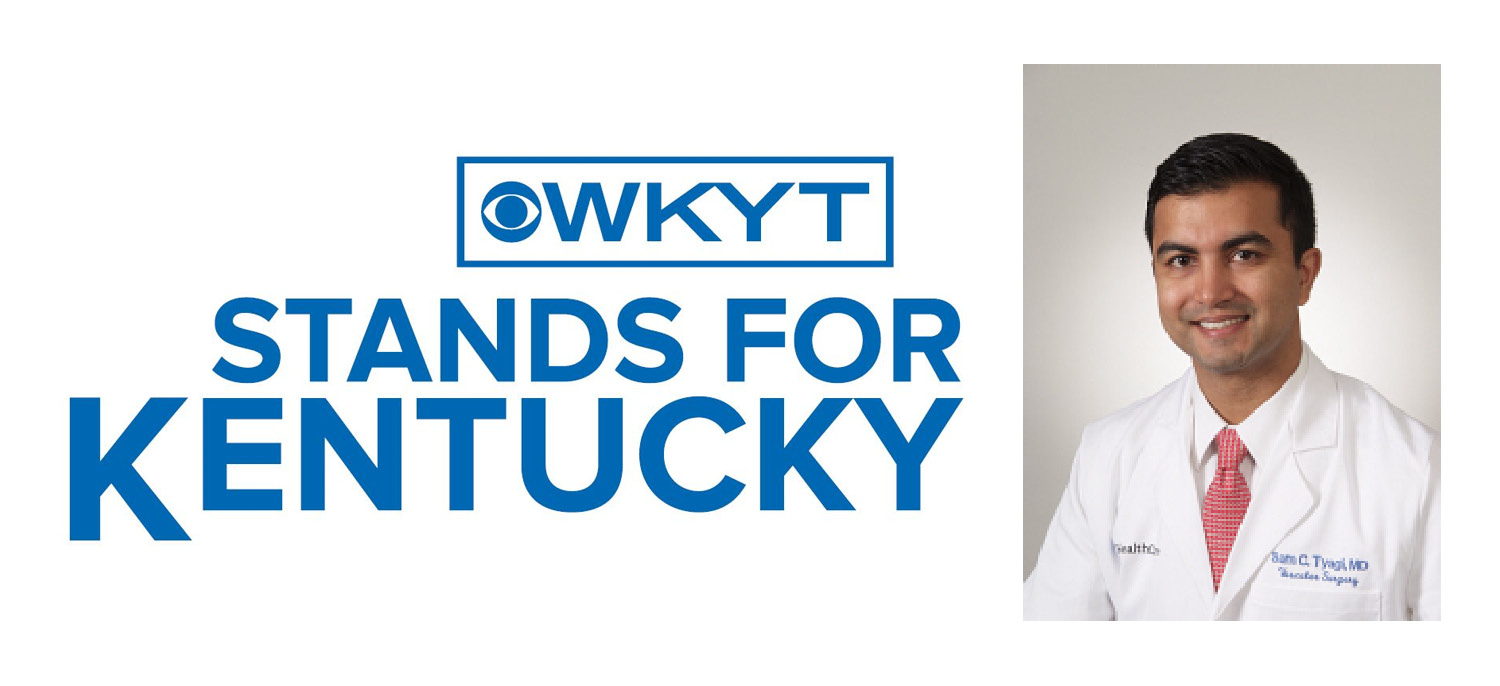LEXINGTON, Ky. (WKYT) - A doctor at the University of Kentucky is using a new procedure to help patients with carotid artery disease.
Dr. Tyagi says the T-CAR procedure is a good option for people who have blockages that are too high or too low to reach with the traditional open surgery route. (WKYT)
You have two common carotid arteries, one on each side of your neck. They supply oxygen-rich blood to your brain, face, scalp, and neck.
When those arteries fill up with plaque, it can cause a stroke because it cuts off the blood supply to your brain.
Doctor Sam Tyagi's procedure has proved to be a safe option for patients with carotid artery disease.
"All I know is a piece of plaque went across my eye," explained Lanny Evans, one of Tyagi's patients.
Evans was one of the 20-some patients Dr. Tyagi has done the transcarotid artery revascularization (T-CAR) procedure on.
"I was a perfect patient for his procedure," said Evans. "When they told me it was 75 percent blocked, I just needed to clear that up. I just wanted it fixed."
Dr. Tyagi says the T-CAR procedure is a good option for people who have blockages that are too high or too low to reach with the traditional open surgery route.
"What we do is we make a small incision right above the collar bone -about an inch - and we're able to put a catheter in there," Dr. Tyagi explained. "That gives us the ability to do flow reversal. And the reason that's important is because when we place the stint, any bits of plaque that could break off to the brain will now go the other direction."
Dr. Tyagi admits the older procedures shouldn't be discounted. But considering so many people deal with this disease, it's important to know your options.
The NHLBI says lifestyle changes, medicines, and medical procedures can help prevent or treat carotid artery disease and may reduce the risk of stroke.
If you think you're having a stroke, you need to call 9-1-1 immediately. Getting treatment within four hours of symptom onset gives you the best chance for a full recovery.
